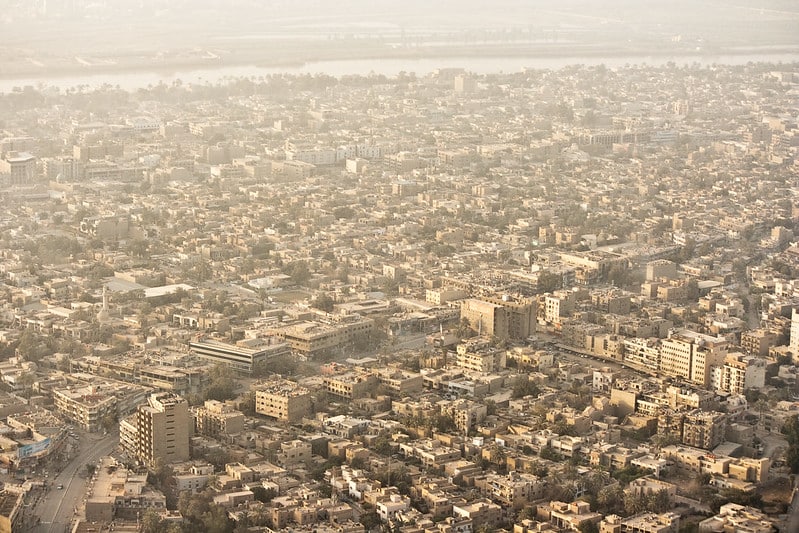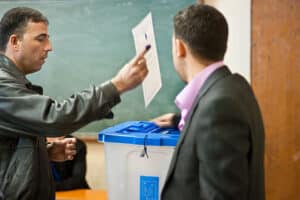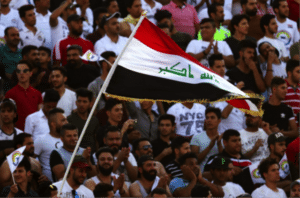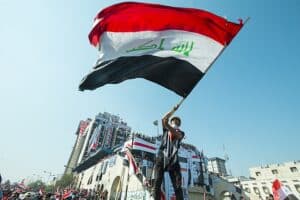On the 10th of October, Iraq will hold parliamentary elections, the fifth since the fall of Saddam Hussein. The elections were originally planned for next year, but they are now held early in response to mass protests against the government in 2019. Protestors took to the streets to protest rampant corruption, poor services, and the wide-held view that the elite had abused power to enrich itself. The protests were first met with brutal police violence, and hundreds of people were killed. The protests nevertheless continued, and in an effort to calm the protests eventually, early elections were announced. A new electoral law was also established, dividing the country into 83 electoral districts and making it possible for independents to compete.
Polarization
Iraq is a nation divided in multiple ethnic groups: most notably Sunni, Shia, and Kurdish groups. The battle against the invasion of ISIS unified the country temporarily, but the coming elections are set to lay bare the growing rifts that have emerged since the last elections. Voters need to decide whether to vote based on party- or tribal links, to vote for an independent, or to abstain entirely.
The Shiite majority is divided in this election between those that are backed by Iran and those that oppose Iran’s influence. The Shiite Sadrist Movement is the political party expected to emerge as parliaments biggest faction, after winning the previous parliamentary elections. The movement is running on a nationalist platform, and sets itself apart from the Iran-backed factions. The Fatah Alliance is the biggest grouping of Iran-aligned parties, though there are pro-Iran parties running outside the Fatah Alliance umbrella. The Fatah Alliance was the second biggest party after the previous elections, coming in only a few seats behind the Sadrist Movement. The third party was the Hikma, again a Shia alliance.
The Sunni parties have shown little unity in Iraqi politics, and are mainly focused on tribal and clan loyalties, increasing the polarization in Iraqi politics. The Sunnis have long been a minority group as the Shia have maintained their political power, and it is expected that they will remain a minority after the coming elections. Kurdish parties will also participate, as well as activist-led parties, though most activists have called a boycott to the elections.
Threats and violence
Iraq’s political landscape is not only increasingly fractured, but it has become harsher and more brutal as well. Parties hold rallies in halls out of the public eye, and campaign posters are not being put up because protesters tear them down. Particularly for women participating in these elections, threats and violence persist. Nevertheless, 951 women are participating, almost 30% of the candidates, in line with the 25% female quota.
Iraqi preparations
The Iraqi government has taken a series of actions in preparations of the elections, in order to reduce election fraud, increase voter turnout, and ensure voter security. The Iraqi Prime Minister Mustafa al-Kadhimi held a cabinet meeting on September the 11th to discuss the procedures and preparations required to secure fair elections. Special forces will be in charge of security during the elections, and the UN and EU have announced that they will deploy observers to monitor the elections in an effort to prevent fraud.
The turnout to Iraqi parliamentary elections is generally low, with the Independent High Electoral Commission (IHEC) stating that the turnout for the parliamentary elections in 2018 was only just over 20%. Not only the government as a whole is encouraging citizens to vote in this election, but the top Shiite cleric Syatollah Ali al-Sistani is also encouraging Iraqis to participate “consciously and responsibly” in these elections.
Sources: Reuters, Reuters2, Al-Monitor, Al-Monitor2
Photo: Flickr



